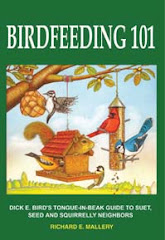 The Amazon Outdoor Store
The Amazon Outdoor StoreSpring is a lean time for bears, but they are better off living on what nature provides than dining on food from people.
Black bears normally are shy and elusive, but the Missouri Department of Conservation urges those few Missourians lucky enough to see bears to keep them at arm's length. Keeping bears wild not only protects people and property, it protects bears, too.Missouri's bear population is small. The Conservation Department estimates their number at fewer than 500, nearly all of which live south of the Missouri River. Bear numbers are growing slowly, however, as individuals disperse into Missouri from the established population in Arkansas.
Throughout most of the year, Missouri's black bear population is nearly invisible. Naturally fearful of humans, they prefer to mind their own business, foraging for natural foods in fields and forests.
Early summer is the exception. A winter long on naps and short on meals leaves them hungry just when their staple foods - acorns and other wild crops - are least abundant. Until berries begin to ripen, they are extra active, ranging widely in search of food.It is not surprising, then, that June brings an uptick in bear sightings. Missourians are apt to find that bruins have raided their bird feeders, emptied pet food bowls or even ventured into out buildings and onto back porches, lured by the smell of human foodstuffs or garbage. There is a danger in all this for both people and bears.Bears are primarily a threat to property, such as bee hives and outbuildings where livestock feed is stored. Most bears that become nuisances can be scared away.
Occasionally one must be trapped and relocated. In rare cases, bears that have lost their natural fear of humans must be destroyed.It is much better for a bear never to get used to humans and handouts. People in southern Missouri - especially those living in rural and suburban areas, should be aware of the potential for bear problems and eliminate the source of such problems - unsecured food.Even bird feeders with sunflower seeds, hummingbird feeders and suet cakes all can attract hungry bears. It is a good idea to discontinue bird feeding until midsummer if you know bears live in your area.
Other advice for avoiding bear problems includes: --Feeding dogs and cats indoors. --Storing livestock feed in airtight containers in locked storage areas. --Cleaning up outdoor grills after each use and storing them indoors. --Putting garbage out the morning of collection. Double-bag refuse, and add a dash of ammonia to each bag before sealing to discourage bears. --Do not place meat or sweet food scraps in your compost pile. --Never intentionally feed bears.
Campers also should be watchful this time of year, because bears sometimes learn to associate campgrounds with an easy meal. Rules for bear-safe camping include never cooking, eating or storing food in tents or sleeping areas and keeping food locked inside vehicles when not in use. If a bear enters your campsite, get inside your vehicle and stay there.If a bear wanders into your yard while you are outside, make your presence known by making lots of noise and get inside as quickly as possible.




No comments:
Post a Comment